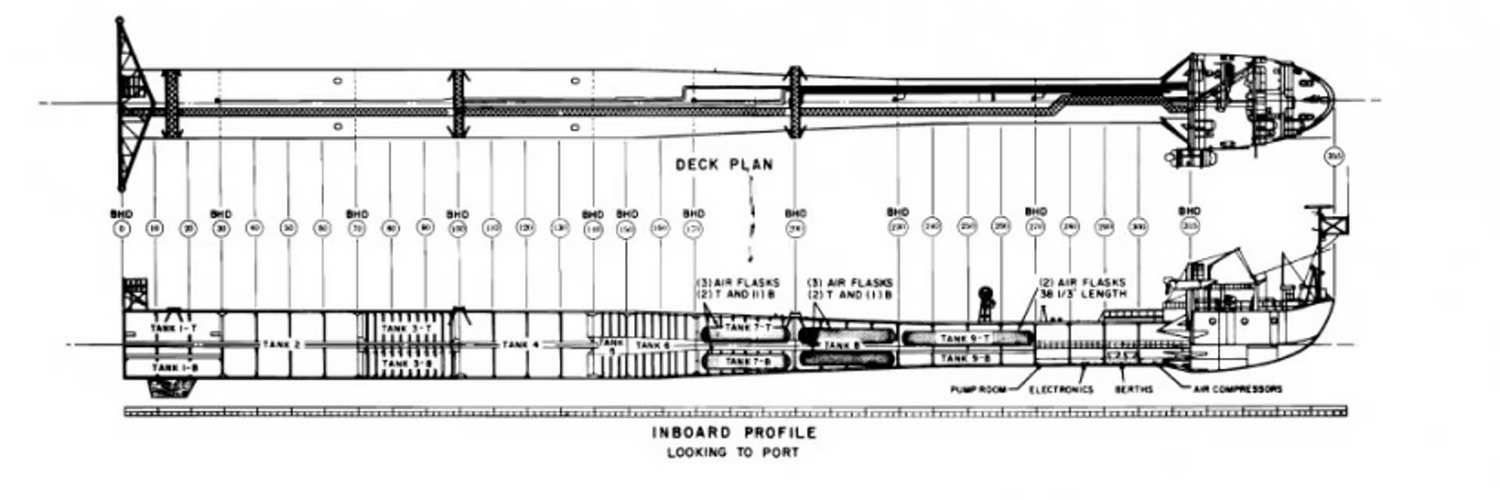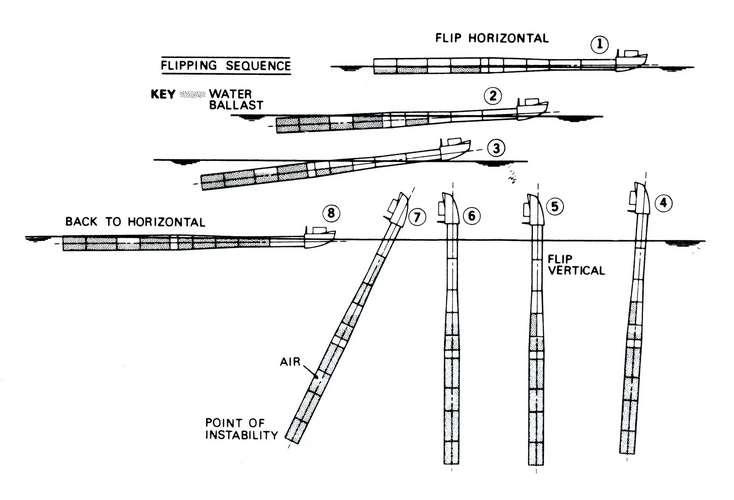R/P FLIP (Floating Instrument Platform), a pioneering research vessel operated for more than fifty years by the U.S. Navy’s Office of Naval Research and the Scripps Institution of Oceanography, was decommissioned in August 2023 and towed to Mexico to be scrapped.
Or so we thought.
Known for its unique design, this remarkable platform could “flip” from a horizontal position to a vertical one. The 355 ft (108 m) long vessel's ability to change orientation from horizontal to vertical gave it stability in even tempestuous seas, making it possible to study oceanographic phenomena like sound propagation, wave dynamics, and marine life in open water.
Originally commissioned in 1962, FLIP had played a crucial role in advancing scientific understanding of the ocean, particularly in acoustics and hydrodynamics, and its contributions to oceanography remain highly significant, having enabled decades of groundbreaking research in marine science.
The decommissioning in 2023 marked the end of an era for this iconic platform, which had become a symbol of innovative marine research.
But, unbeknownst to the world until now, this was not to be the end.
Word of FLIP's impending destruction had reached the founder of DEEP, the subsea design firm developing the next generation of underwater human habitats, and within 48 hours a team had been scrambled and was en route to Mexico to intercept FLIP before it was destroyed. "The direction from our founder was quite clear," says Giulio Maresca, FLIP's new Captain: "Save her. Don't come back without her."
Now, months later, the rescued platform has made its way from Mexico, through the Panama Canal and across the Atlantic to the Mediterranean, where over the next 12 – 18 months she will be refitted and modernised in France.
Kristen Tertoole, CEO of DEEP, said: “FLIP is an iconic research platform – anyone in the maritime research or engineering communities knows about her, and many have a war story or two. We're incredibly proud to confirm FLIP's arrival in European waters. FLIP is from a time of bold engineering and optimism for our future and our oceans, an ethos DEEP shares and seeks to embody. Our mission is perhaps equally bold: to make humans aquatic by enabling our species to live, work and thrive underwater. FLIP will play a key role in the DEEP fleet, providing a one-of-a-kind platform for ocean research and being capable of supporting DEEP's Sentinel habitat deployments as part of our extended research network. We look forward to announcing her relaunch in early 2026, and I'm thrilled to confirm that many oceanographic and research groups are already in contact to ensure access.”
FLIP's refit is to take place at MB92, a renowned shipyard with facilities in both Barcelona, Spain and La Ciotat, France. "MB92's reputation for cutting-edge technology, innovation, and a commitment to sustainability made it the obvious choice for this admittedly very unusual project," says Maresca.
MB92 Group Managing Director, Rob Papworth, said: “The complete modernisation of FLIP to further our understanding of the ocean is what’s in our DNA. MB92 is exceptionally proud to be involved in this historic project.”
Dr Tom Drake, Office of Naval Research, commented: “I’m delighted by DEEP's decision to revitalize and modernize the R/P FLIP, a unique research platform that has served the ONR exceptionally well for years. This modernization initiative will significantly expand her capabilities in ocean science, observation, and exploration, breathing new life into a vessel that has been vital to our mission. We look forward to working closely with DEEP to continue the U.S. Navy's proud tradition of excellence in the operation of FLIP.”

 www.yahoo.com
www.yahoo.com

 gcaptain.com
gcaptain.com



 gcaptain.com
gcaptain.com




